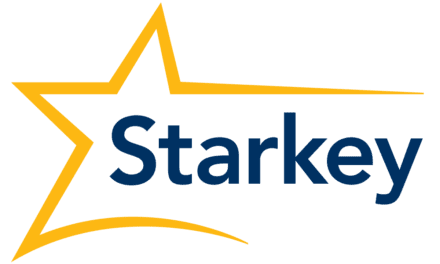Sensorion (Paris:ALSEN) (FR0012596468 – ALSEN) a clinical-stage biotechnology company which specializes in the development of novel therapies to restore, treat, and prevent within the field of hearing loss disorders, announced results from the 115-patient Phase 2 AUDIBLE-S study of SENS-401 (Arazasetron), for the treatment of sudden sensorineural hearing loss (‘SSNHL’).
The company reports that SENS-401 was “safe and well tolerated, however, it did not meet the primary endpoint of 15 dB, a significant improvement in pure tone audiometry (PTA, dB) in the affected ear from baseline in comparison to placebo at the end of the four-week treatment period.”
A sub-analysis in participants with hearing threshold > 80dB, representing those with severe hearing loss, showed a better response compared to placebo at the two doses. This subgroup accounted for 30% of the overall study population. These results confirm the data the company says it obtained in its preclinical model of severe noise-induced hearing loss.
Sensorion will continue to evaluate the data from the AUDIBLE-S study and the secondary endpoints results will be released mid-March. Sensorion will outline plans for the development of SENS-401 SSNHL at that point.
”We are encouraged by the SENS-401 activity data that showed a continuous improvement from day 7 until day 28. We will review the full data as soon as possible and explore in particular the PTA comparisons at day 84 and the other secondary endpoints in the trial to determine the best development path for SENS-401,” said Géraldine Honnet, CMO of Sensorion.
“We’re naturally disappointed that the Phase 2 AUDIBLE-S trial of SENS-401 did not meet the primary endpoint of the study. However, we are looking forward to reviewing the secondary endpoints once these become available by mid-March. Sensorion is committed to continuing to develop novel therapies in indications to restore, treat, and prevent hearing loss disorders. Through our pioneering R&D technology platform and with a number of promising new therapeutic approaches, including gene therapy programs, we are confident in our mission,” said Nawal Ouzren, CEO of Sensorion. “We would like to express our gratitude to the investigators, collaborators, and partners who have worked with us and particularly the patients who participated in the trial.”
Mauricio Cohen-Vaizer, ENT, department of otolaryngology, head and neck surgery, Rambam Health Care Center, Haifa, Israel, said: “Sudden sensorineural hearing loss is a debilitating condition for which there are no therapeutic treatments currently available. Although the trial did not meet the primary endpoint, Sensorion and its investigators have acquired a wealth of knowledge around this poorly understood condition and are in a good position to explore further development options. Sensorion is doing valuable work in raising awareness and understanding of this condition.”
Sensorion is continuing to develop novel therapies in other indications to restore, treat, and prevent within the field of hearing loss disorders. Sensorion submitted a clinical trial application for a proof of concept (POC) study of SENS-401 clinical study in cisplatin-induced ototoxicity (CIO) in December 2021. Separately, Sensorion and its partner Cochlear Limited plan to submit a clinical trial application for SENS-401 in patients scheduled for cochlear implantation by the end of January 2022. Sensorion has also launched three gene therapy programs, currently at preclinical stage, aimed at correcting hereditary monogenic forms of deafness including deafness caused by a mutation of the gene encoding for otoferlin, hearing loss caused by GJB2 gene mutations and Usher syndrome Type 1, to potentially address important hearing loss segments in adults and children.
Source: Sensorion





